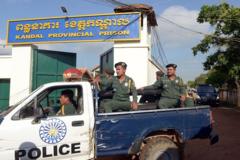Surrogacy remains a contentious issue in Cambodia, with the recent conviction of thirteen pregnant Filipino women stirring significant debate. The Kandal Provincial Court found the women guilty of human trafficking for their intended arrangements to sell the babies they carried. The women received sentences of four years, with two years suspended, but will not serve jail time until after giving birth. The Cambodian authorities accused them of planning to sell the infants in exchange for money; however, Nicholas Felix Ty, the undersecretary of the Philippines Department of Justice, argued that the women themselves are victims of human trafficking.
Police discovered the women during a raid on a villa near Phnom Penh on September 23. The surrogacy discussion continues to polarize opinions, as it remains illegal in Cambodia. Nevertheless, various agencies still promote surrogacy services, targeting international couples willing to pay substantial fees for the arrangement. The Cambodian authorities have been criticized for their handling of the problem, particularly since the country’s surrogacy industry began to gain momentum following its prohibition in Thailand in 2016.
One notable precedent includes the case of 32 surrogate mothers charged in 2018, who were eventually released with the stipulation that they must raise the children. The current case raises ongoing questions about the ethics surrounding surrogacy practices, as well as the treatment of the women who find themselves at the center of this complex and often exploitative arrangement. Alongside the sentenced women, four Vietnamese women were deported, as were seven other Filipino women not pregnant at the time.
While the Cambodian interior minister, Chou Bun Eng, considered the pregnant women to be culpable, the case highlights the broader societal challenges faced by individuals seeking reliable surrogacy options and raises critical questions about the roles of agencies and governments in safeguarding potential victims caught in such situations. The future of the newborns and their mothers remains uncertain as Cambodia attempts to navigate the murky waters of an industry that persists despite legal prohibitions.
Police discovered the women during a raid on a villa near Phnom Penh on September 23. The surrogacy discussion continues to polarize opinions, as it remains illegal in Cambodia. Nevertheless, various agencies still promote surrogacy services, targeting international couples willing to pay substantial fees for the arrangement. The Cambodian authorities have been criticized for their handling of the problem, particularly since the country’s surrogacy industry began to gain momentum following its prohibition in Thailand in 2016.
One notable precedent includes the case of 32 surrogate mothers charged in 2018, who were eventually released with the stipulation that they must raise the children. The current case raises ongoing questions about the ethics surrounding surrogacy practices, as well as the treatment of the women who find themselves at the center of this complex and often exploitative arrangement. Alongside the sentenced women, four Vietnamese women were deported, as were seven other Filipino women not pregnant at the time.
While the Cambodian interior minister, Chou Bun Eng, considered the pregnant women to be culpable, the case highlights the broader societal challenges faced by individuals seeking reliable surrogacy options and raises critical questions about the roles of agencies and governments in safeguarding potential victims caught in such situations. The future of the newborns and their mothers remains uncertain as Cambodia attempts to navigate the murky waters of an industry that persists despite legal prohibitions.

















